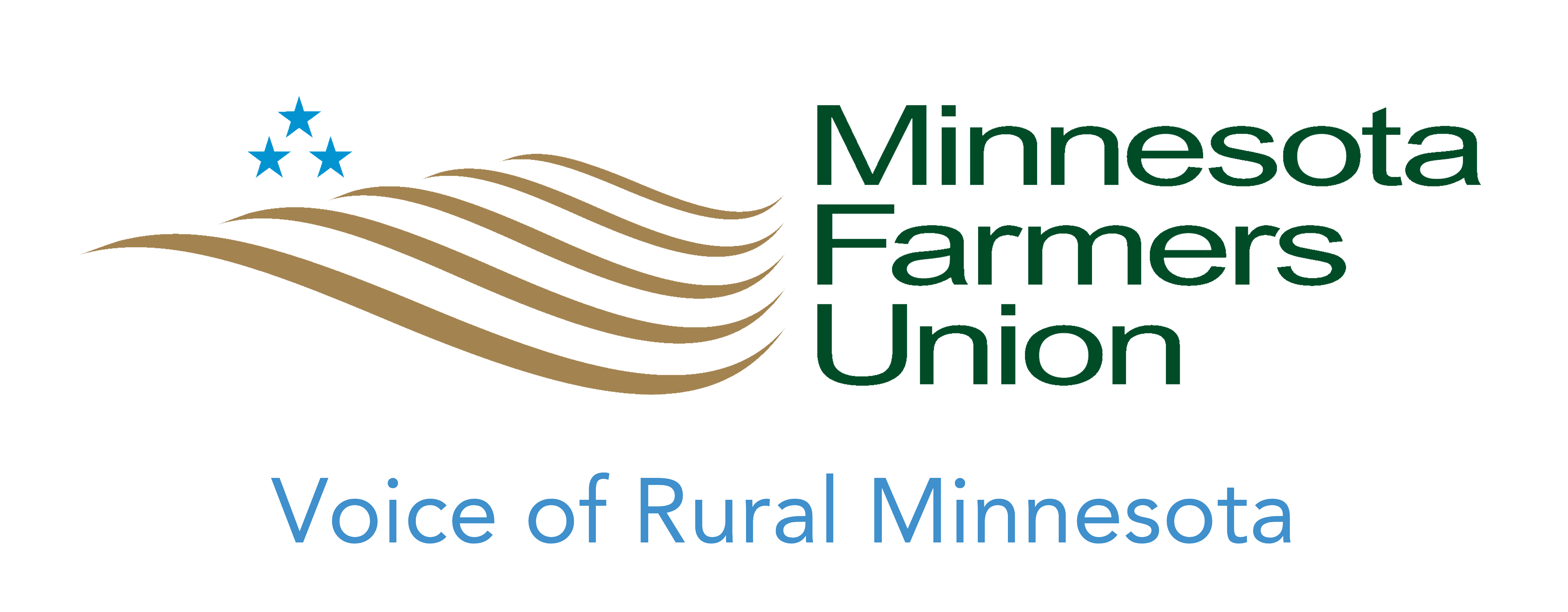MFU hosts Working Group for Climate-Smart Commodities
ST. PAUL – More than 60 people gathered in-person and virtually on May 3 for the inaugural meeting of the Minnesota Working Group for Partnerships for Climate-Smart Commodities. Minnesota Farmers Union (MFU) initiated the meeting to bring together representatives from the many organizations that will be participating in the USDA’s Partnerships for Climate-Smart Commodities (PCSC) grant-funded projects.
“Working with other organizations to coordinate and share information will make these projects more successful and bring more value to family farmers in our state,” said Ariel Kagan, MFU Climate and Working Lands Program Director. “Many of us know something about a few of these initiatives, and together we know a lot more. I’m energized by the discussion and look forward to continued collaboration.”
USDA invested more than $3.1 billion in 141 projects through the Partnerships for Climate-Smart Commodities.
“USDA’s Partnerships for Climate-Smart Commodities is an opportunity for farmers who are on the front lines of climate change to deliver on their work to build resilient, climate-friendly agricultural products,” said Minnesota Farm Service Agency State Executive Director Whitney Place. “Minnesota has already been leading in this work, and with the investment in these partnerships, 27 of which cover the state, we have an opportunity to build resiliency into our food system and allow Minnesota ag products to be competitive in the global market.”
USDA says these projects will:
- Provide technical and financial assistance to producers to implement climate-smart production practices on a voluntary basis on working lands;
- Pilot innovative and cost-effective methods for quantification, monitoring, reporting and verification of greenhouse gas benefits; and
- Develop markets and promote the resulting climate-smart commodities.
It’s anticipated that the projects will reach more than 60,000 farms nationally, cover 25 million acres and sequester more than 60 million metric tons of carbon. The projects are intended to expand markets and create revenue streams for farmers and ranchers.
“It was great to have a gathering of people passionate to see all these projects succeed,” said Lucas Sjostrom, Minnesota Milk Producers Association Executive Director. “For Minnesota Milk and Edge Dairy Farmer Cooperative, we want to see dairy farmer success. But other groups brought their own network or groups of farmers to connect to these innovations. We don’t want to leave dollars or climate-enhancing agricultural opportunities on the table in Minnesota, so communication and coordination is key.”
The working group plans to stay in contact as projects get started to share information and reconvene in the fall to discuss project progress.
About Minnesota Farmers Union
Minnesota Farmers Union works to protect and enhance the economic interests and quality of life of family farmers and ranchers and rural communities. MFU is a nonprofit membership-based organization. Membership is open to everyone. Learn more and join at www.mfu.org and follow MFU on Facebook, Twitter and Instagram.
# # #
Minnesota Farmers Union—Standing for Agriculture, Working for Farmers (www.mfu.org).
